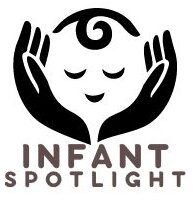What Are Some Signs That You May Be Experiencing Postpartum Depression, And Where Can You Seek Help?
Postpartum depression is a common condition that affects many new mothers. It is important to be aware of the signs so that you can seek help and support when needed. This article will discuss some common signs of postpartum depression and provide information on where you can seek help.
Understanding Postpartum Depression
Postpartum depression is a mood disorder that can affect women after childbirth. It is different from the “baby blues,” which are mild mood swings that many women experience after giving birth. Postpartum depression is more severe and can interfere with daily activities.
What Causes Postpartum Depression?
Postpartum depression can be caused by a combination of physical, emotional, and lifestyle factors. Hormonal changes after childbirth, lack of sleep, and stress can all contribute to the development of postpartum depression. Additionally, a history of depression or anxiety, a difficult childbirth experience, or lack of support from family and friends can also increase the risk of postpartum depression.
Signs and Symptoms
It is important to be aware of the signs and symptoms of postpartum depression so that you can recognize them in yourself or a loved one. Some common signs of postpartum depression include:
- Persistent sadness or feelings of hopelessness
- Loss of interest in activities you once enjoyed
- Difficulty bonding with your baby
- Changes in appetite or sleep patterns
- Feelings of guilt or worthlessness
- Thoughts of harming yourself or your baby
If you are experiencing any of these symptoms, it is important to seek help from a healthcare provider.

Where to Seek Help
If you suspect that you may be experiencing postpartum depression, there are several resources available to help you.
Healthcare Provider
Your healthcare provider is a good place to start if you think you may have postpartum depression. They can assess your symptoms and provide a diagnosis. They may also recommend therapy, medication, or support groups to help you manage your symptoms.
Postpartum Support International
Postpartum Support International is a non-profit organization that provides resources and support to women who are experiencing postpartum depression. They offer a helpline, support groups, and online resources to help women cope with postpartum depression.
Online Resources
There are many online resources available for women who are experiencing postpartum depression. Websites such as Postpartum Progress and The Blue Dot Project offer information, support, and resources for women who are struggling with postpartum depression.
Support Groups
Joining a support group can be helpful for women who are experiencing postpartum depression. Support groups provide a safe space to share experiences, receive support from others who are going through similar challenges, and learn coping strategies for managing postpartum depression.
Treatment Options
There are several treatment options available for women who are experiencing postpartum depression.
Therapy
Therapy, such as cognitive behavioral therapy or interpersonal therapy, can be effective in treating postpartum depression. Therapy can help you explore and address the underlying causes of your depression, learn coping skills, and improve your relationships.
Medication
In some cases, medication may be prescribed to help manage the symptoms of postpartum depression. Antidepressants can help regulate mood and alleviate symptoms of depression. It is important to talk to your healthcare provider about the risks and benefits of medication for postpartum depression.
Self-Care
Self-care is an important aspect of managing postpartum depression. Taking care of yourself both physically and emotionally can help improve your mood and overall well-being. It is important to get plenty of rest, eat a healthy diet, exercise regularly, and practice relaxation techniques to help manage your symptoms.

Conclusion
Postpartum depression is a common condition that affects many new mothers. It is important to be aware of the signs and symptoms so that you can seek help and support when needed. If you think you may be experiencing postpartum depression, do not hesitate to reach out to a healthcare provider or a support organization for help. Remember, you are not alone, and there are resources available to help you through this challenging time.
